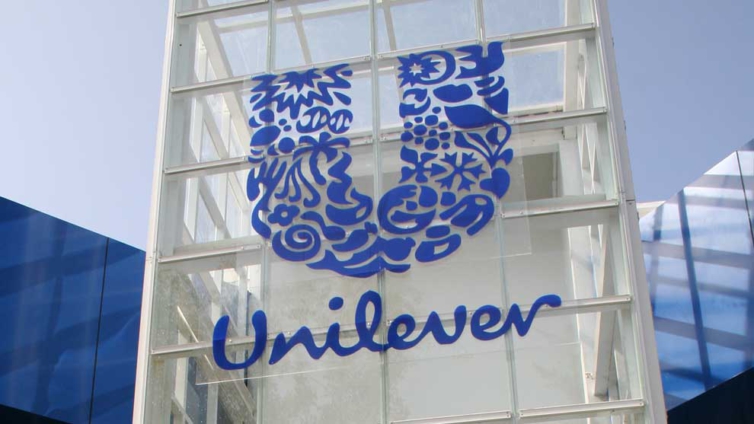The coronavirus pandemic has both shone a light on and exacerbated social inequalities, and consumer goods giant Unilever says it wants to tackle these to help build a more equitable society.
Unilever announced on Thursday a strategy on how it plans do so, setting out a list of commitments that aim to raise living standards across its value chain, promote inclusivity, and prepare people for the future of work.
Alan Jope, CEO of Unilever, told CNBC’s Julianna Tatelbaum in an interview recorded ahead of the announcement, that the company was aiming to be a “positive force in tackling the persistent and worsening issue of social inequality” with its new strategy. He added that this goal had “never been more relevant than what we’ve seen with the crises of the last year — the pandemic, the social and racial justice crises.”
One of the goals on Unilever’s list is to “help equip 10 million young people with essential skills that they will need for the types of job opportunities that will be around in 2030 and which will be very different from today,” explained Jope.
Unilever plans to train up this number of young people by 2030, partly by working with youth employability platform LevelUp, giving them access to training, volunteering and work experience.
Young people have been disproportionately affected by job and income losses, as well as disruption to education and training, as a result of the coronavirus pandemic. A report by the United Nations’ International Labor Organization in August found 42% of young people around the world had lost income due to the pandemic.
Living wages, diversity and inclusivity
Another of Unilever’s commitments is to ensure that everyone who directly provides goods and services to the consumer goods giant earns at least a living wage or income, by 2030. Jope said that this target was about “ensuring millions of people around the world have a standard of living that allows them to feed, clothe, house, educate, provide health care for them and their families.”
While Unilever already pays its employees at least a living wage, it wanted to extend this further down the supply chain, “specifically focusing on the most vulnerable workers in manufacturing and agriculture,” the company said in a statement Thursday.
Another report by the United Nations University, published last year, forecasted that the coronavirus pandemic could push around half a billion more people into poverty globally.
Alongside its living wage goal, Unilever also plans to “help 5 million small and medium-sized enterprises (SMEs) in our retail value chain grow their business through access to skills, finance and technology, by 2025.”
As part of its efforts to drive equality and inclusivity, Unilever plans to spend 2 billion euros ($2.42 billion) a year with suppliers owned and managed by people from under-represented groups, by 2025.
These suppliers will be SMEsowned and managed by women, under-represented racial and ethnic groups, people with disabilities and LGBTQI+.
In addition, Unilever said it will increase the diversity of people appearing and working behind the camera on its advertisements.
Last year, Unilever also took steps to make its business more sustainable, including using geolocation data and satellite imagery to check for deforestation in its supply chain.
Asked about balancing changing consumer preferences and environmental priorities, with investor impatience for returns, Jope told CNBC that he believed “one of the most dangerous mindsets in business, is that it’s a tradeoff between responsible business and strong financial performance.”
Latest Stories
-
Syria’s minorities seek security as country charts new future
26 minutes -
Prof. Nana Aba Appiah Amfo re-appointed as Vice-Chancellor of the University of Ghana
33 minutes -
German police probe market attack security and warnings
33 minutes -
Grief and anger in Magdeburg after Christmas market attack
34 minutes -
Baltasar Coin becomes first Ghanaian meme coin to hit DEX Screener at $100K market cap
1 hour -
EC blames re-collation of disputed results on widespread lawlessness by party supporters
2 hours -
Top 20 Ghanaian songs released in 2024
2 hours -
Beating Messi’s Inter Miami to MLS Cup feels amazing – Joseph Paintsil
2 hours -
NDC administration will reverse all ‘last-minute’ gov’t employee promotions – Asiedu Nketiah
2 hours -
Kudus sights ‘authority and kingship’ for elephant stool celebration
2 hours -
We’ll embrace cutting-edge technologies to address emerging healthcare needs – Prof. Antwi-Kusi
3 hours -
Nana Aba Anamoah, Cwesi Oteng special guests for Philip Nai and Friends’ charity event
3 hours -
Environmental protection officers receive training on how to tackle climate change
3 hours -
CLOGSAG vows to resist partisan appointments in Civil, Local Government Service
4 hours -
Peasant Farmers Association welcomes Mahama’s move to rename Agric Ministry
4 hours

